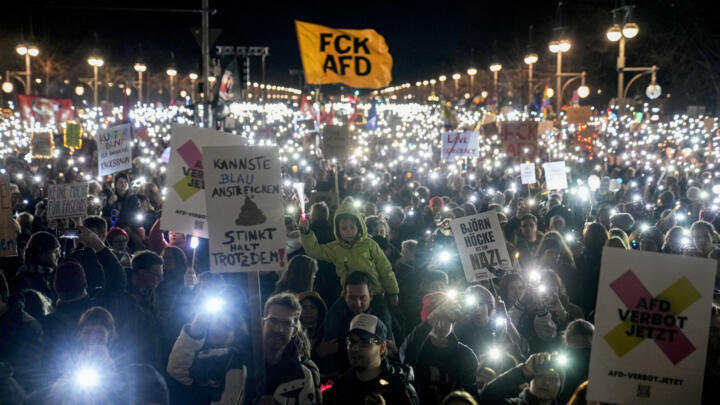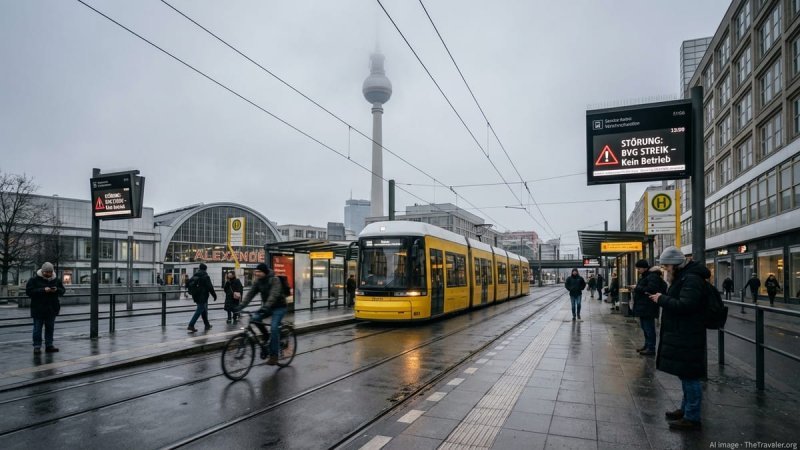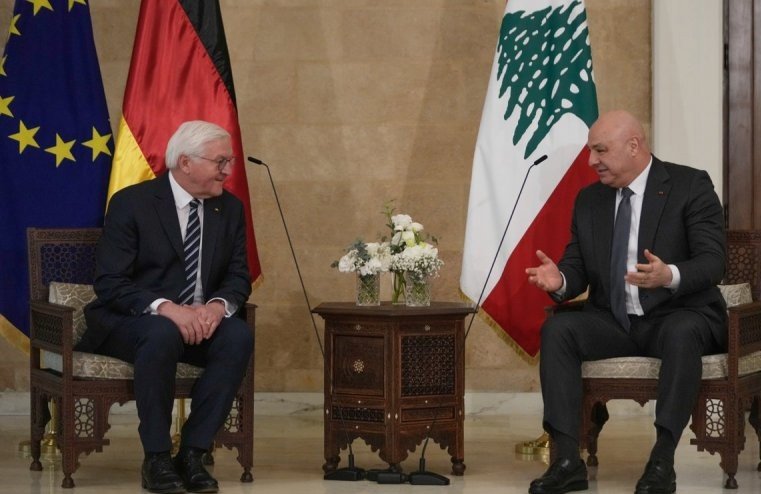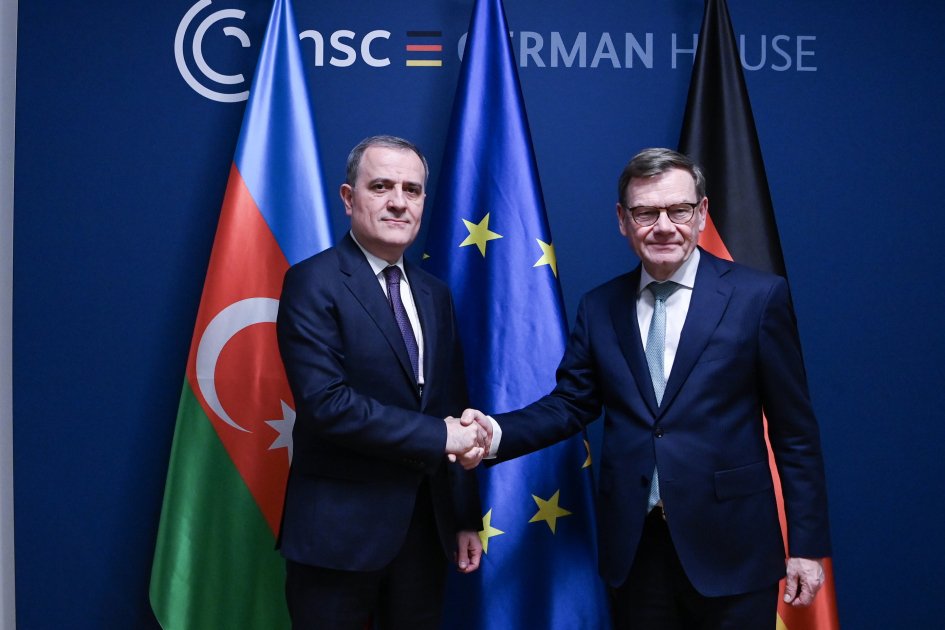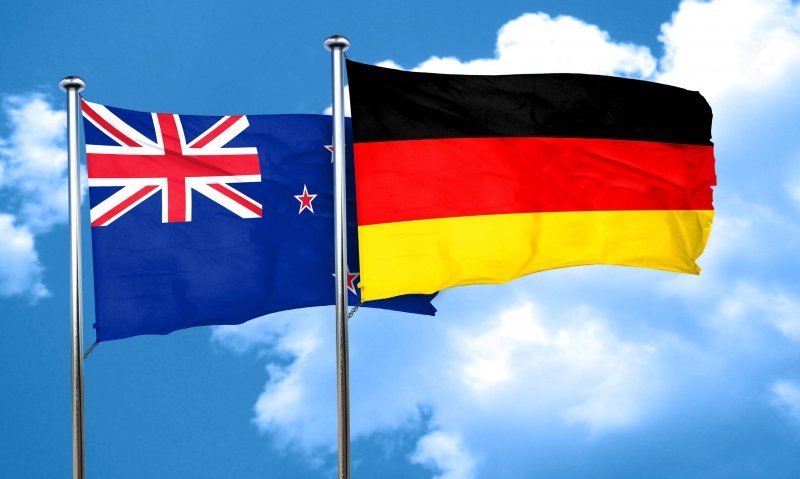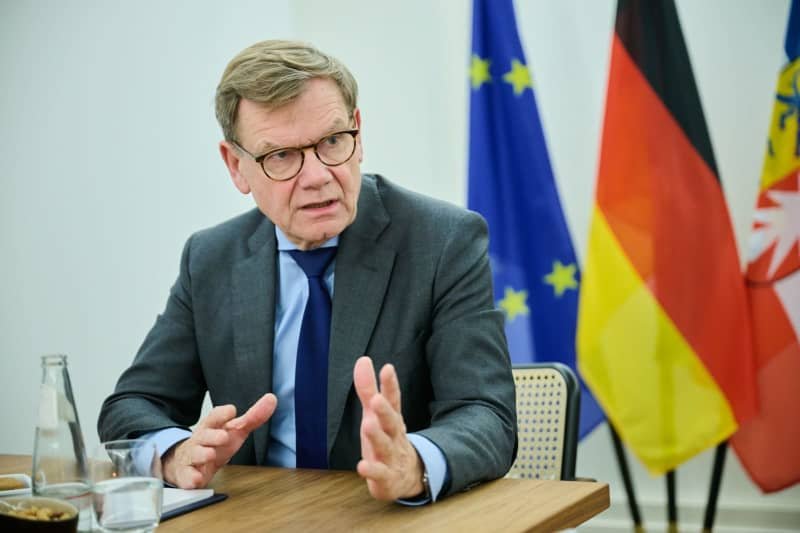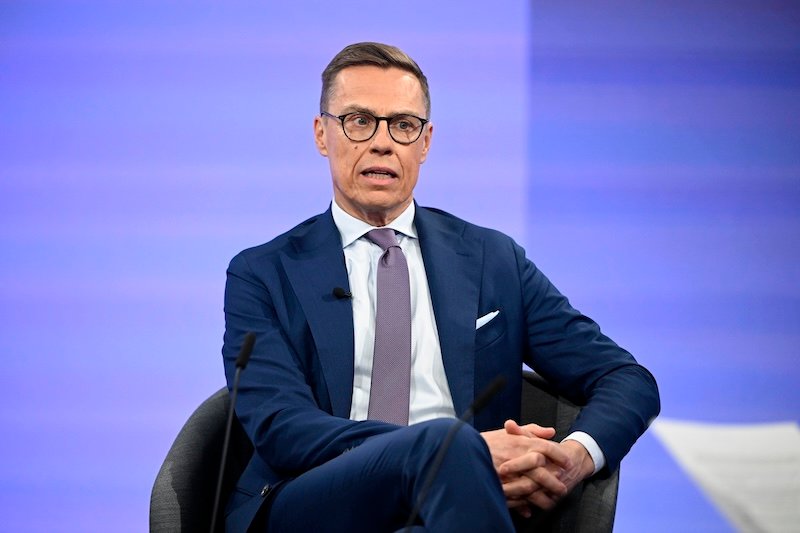Berlin, February 9, 2025 – The Europe Today: Fresh protests against the extreme far-right have drawn massive crowds across Germany, with authorities reporting an estimated 250,000 demonstrators in Munich alone. The nationwide demonstrations come just weeks before the country’s pivotal parliamentary elections on February 23.
The largest protest, dubbed “Munich is Multicolour,” saw organizers claim a turnout exceeding 320,000 people. Demonstrators rallied under the slogan “Democracy Needs You,” voicing opposition to any political collaboration with the Alternative for Germany (AfD) party.
Germany has long adhered to an unwritten rule against working with far-right parties, a stance rooted in the country’s post-World War II commitment to democracy. However, recent developments have sparked widespread concern, particularly over the Christian Democratic Union (CDU), the leading party in the polls, which has faced accusations of breaking this so-called “firewall.” The CDU recently sought parliamentary support from the AfD for an anti-immigration bill, prompting backlash from pro-democracy advocates.
The Munich demonstration took place at the iconic Theresienwiese, the venue of the annual Oktoberfest. Protesters held placards condemning CDU leader Friedrich Merz, with slogans such as “Shame on you!”
“I want democrats to take back control,” said 64-year-old protester Joachim Hageboeck. “It’s bad enough that Austria, America, and other countries have so many fascists in charge. We have to oppose them.”
Another protest in the northern city of Hanover saw an estimated 24,000 participants, according to police reports.
Political Implications and Rising Tensions
The CDU has categorically ruled out forming a coalition government with the AfD. Addressing a rally in Nuremberg for the CDU’s Bavarian sister party, the Christian Social Union (CSU), Merz reaffirmed his stance. “We would be betraying our country,” he stated. “Anyone who really wants change in Germany must not vote for the AfD.”
Merz’s hardline stance on immigration has become a focal point of the election campaign, particularly in the aftermath of a recent knife attack involving an Afghan suspect. The CDU, polling at approximately 30 percent, has adopted a tougher immigration policy in a bid to attract voters drawn to the AfD’s anti-migrant rhetoric.
The AfD, which entered Germany’s national parliament in 2017, currently holds second place in the polls with support ranging between 20 and 22 percent. Meanwhile, the governing coalition of Chancellor Olaf Scholz’s Social Democrats (SPD) and the Greens is trailing at around 15 percent.
With Germany approaching a critical electoral juncture, the widespread protests signal a growing resistance to far-right influences in national politics. The outcome of the elections is expected to shape the country’s approach to democracy, immigration, and governance for years to come.
